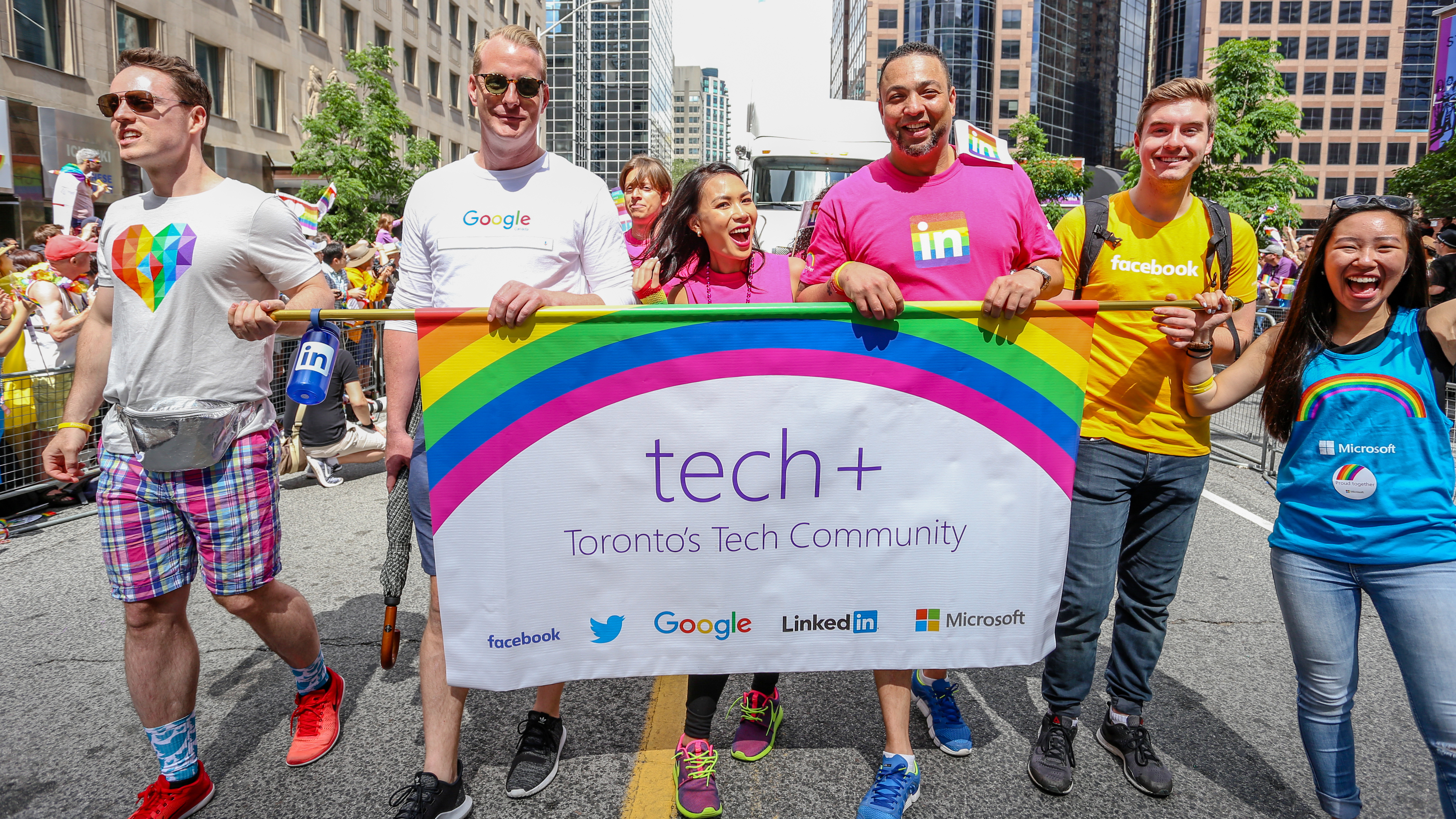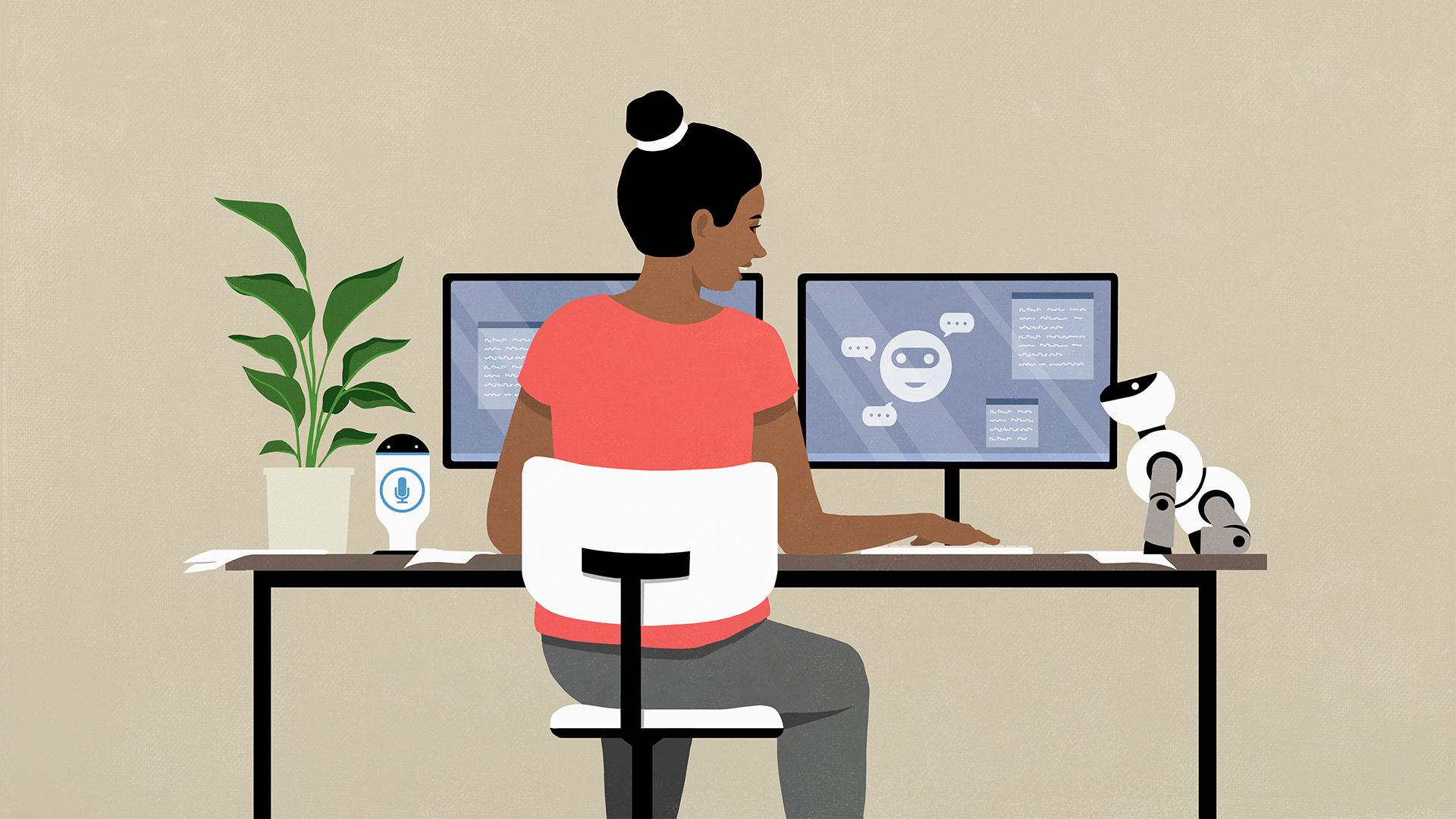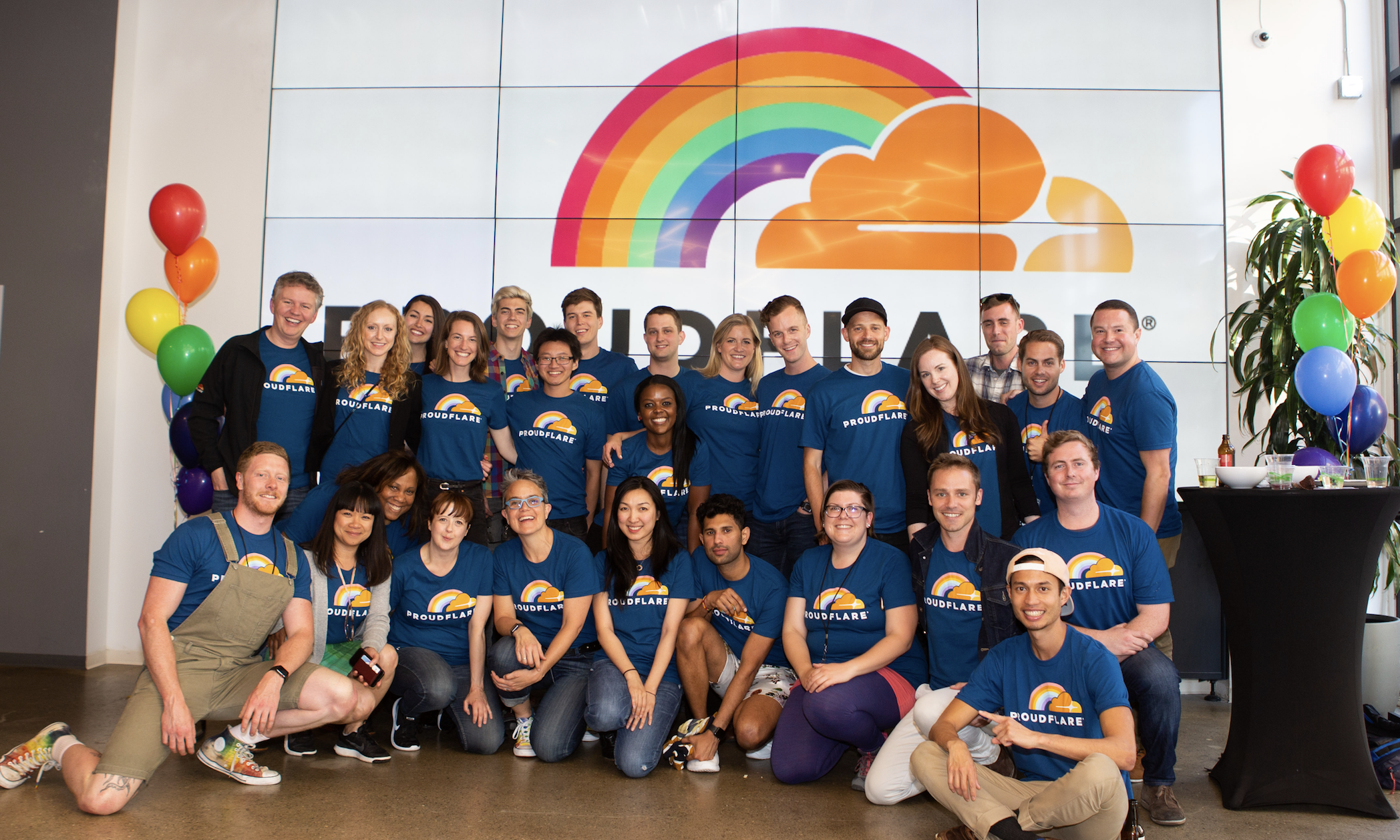Does the tech industry welcome the LGBTQ+ community?
From passive discrimination to active acceptance, the employment landscape for LGBTQ+ people in tech is still uncertain


In 1964, a 26-year old Columbia graduate was selected by IBM Research to join a team working on the Advanced Computing Systems project, which gave rise to a number of innovations that have paved the way for modern high-performance computers. After four years of working on the project, Lynn Conway lost her job after she revealed her intention to transition to a female gender role. Despite this, Conway returned to IT the same year and went on to work for Xerox PARC, the US military’s Defense Advanced Research Projects Agency (DARPA) and, in 2014, Time Magazine named her one of “21 Transgender People Who Influenced American Culture”.
The world of tech, just like any other industry, has participated in the systematic persecution and erasure of its LGBTQ+ community. One of the most famous examples in this country is that of World War II code-breaker and founder of computer science, Alan Turing, who in 1952 was convicted for having sex with another man. Barred from continuing his cryptographic work, or indeed any government work, and forcibly chemically castrated, he died by suicide two years later.
Although the UK’s society and legislation have become increasingly more tolerant towards queer people, few are willing to take the risk of being open about their identity in their professional lives.
Hilary Stephenson, managing director at software provider Sigma, kicked off her career in tech in 1997, starting out in software development and moving to information design when services moved online and the internet became the priority for new product development. Over the years, she has witnessed her transgender friends being mistreated and fired, which influenced her own relations with coworkers.
“For many years I remained closeted at work, as it just wasn’t something I felt comfortable talking about and I’d made the huge, probably self-preserving, assumption it would certainly be an uncomfortable topic for others,” she says. “I understand this was quite a common position for people in the LGBTQ+ community to take, where we sought to avoid everyday embarrassments, awkwardness or shame by simply keeping quiet, or lying where needed.”
Nevertheless, Stephenson is positive about modern attitudes in tech workplaces, with noticeable improvements made over the course of the past two decades. There is, she says, a “very real and meaningful focus on diversity and inclusion I now see across the digital community”.
“Our digital emphasis on human-centred design, accessibility and user research means we’ve driven the need to understand context, behaviours and experience into the tech sector,” Stephenson adds. “That kind of empathy, interest in intersectionality and a desire to appreciate other people’s stories allow me to be much more open and comfortable in my environment and networks.”
Get the ITPro daily newsletter
Sign up today and you will receive a free copy of our Future Focus 2025 report - the leading guidance on AI, cybersecurity and other IT challenges as per 700+ senior executives
Trans people often do not have the option to leave their identity outside of the office. While cisgendered members of the LGBTQ+ community have the privilege to choose whether they remain ‘in the closet’, the physical changes while transitioning are noticeable at first glance and may impact professional interactions.
Three years ago, Arora Ashani founded Non Binary in Tech, a conference that highlights the work of non-binary people in the technology industry and seeks to ensure that their attendees feel “comfortable being themselves, making friends and building their network”. She started the conference inspired by her own experience in the technology industry.
“As a queer woman of colour, it's definitely harder to find roles than my white cishet [cisgender and heterosexual] friends,” says Ashani. “When interviewing, it's hard to figure out if companies are actually inclusive to women, POC [people of colour] and queer folks, and sometimes asking directly means recruiters ghost me.”
Today, Ashani works as a front-end developer for YOOX Net-a-Porter. She says that being an LGBTQ+ person in the tech industry “has its ups and downs” and credits “a senior, openly-queer woman on the team” as one of the reasons she applied for her first job at Samsung.
“It's hard to find older role models in the tech industry, which is one of the reasons I created the conference – to create role models for myself and other people,” she says.
For a young queer person starting their career in tech, having an openly-queer supervisor and mentor helps create a positive impact and a more welcoming environment. In a predominantly cisgender and heteronormative workspace, it’s too easy to feel out of place.
Mel Woolfenden, chair of Fujitsu’s Pride LGBT+ Network says that 74% LGBT people have mental health problems related to work, referring to the Mental Health at Work survey by the Business in the Community (BITC) organisation.
“One of the things that we've been doing is trying to engage senior leaders,” she says. “They have been a real catalyst in making changes of acceptance across our organisation.”
That is why Fujitsu implemented reverse mentoring, which focuses on creating a "professional friendship" between a junior and senior team member in order to exchange skills, knowledge and understanding.
Woolfenden says that the strategy has been “really helpful, from the LGBT point of view” and helped senior leaders realise how seemingly minor changes, such as adjusting the language used in the office or making sure to involve everyone in a meeting “can make a massive difference”.
In the US, tech giants are no stranger to being represented by prominent LGBTQ+ figures: Apple’s Tim Cook, Microsoft’s Ana Arriola, Backstage Capital’s Arlan Hamilton, or Linux’s Jon Hall. The UK does not have as many tech giants as the US, but is that the only thing stopping queer people from coming out?
Rachel Clancy, co-creator of Get Closer, a text adventure game that teaches 10-12-year-olds how to help a friend experiencing depression, agrees that the UK and Ireland are still very far from being open about gender identity and sexuality.
“My partner is Spanish and she always thinks it's very funny how people from these countries are very uptight – we are very conscious of not oversharing,” she says. “Maybe people see their sexuality as something that is their personal information. I mean, I'm guessing, because the tech industry is so male-dominated. And that's one of the reasons why the Sky scholarship [Women In Tech, of which Clancy is a recipient] happened because they were trying to figure out as many avenues as possible to combat that gender imbalance.”
For Clancy, an understanding of LGBTQ+ issues was important when choosing a developer for Get Closer. That is why she and her business and romantic partner, Aida Sancho Lopez, decided to collaborate with the queer-owned Tea-Powered Games, which was founded by another couple, Destina Connor and Flo Minuzzi.
“Our game doesn't deal explicitly with things like sexuality and gender identity,” says Clancy. “We do have a non-binary character in the game, but we needed to know that we were working with someone who was aligned with our personal kind of beliefs and had that sensitivity towards things like gender identity and sexuality.”
If tech firms want to step into the new decade with confidence that they will be on the right side of history, they should embrace their queer workforce. The huge societal, professional, and legal changes that the UK had undergone since decriminalising homosexuality should not be diminished. However, as Alan Turing once said: “We can only see a short distance ahead, but we can see plenty there that needs to be done”.
Having only graduated from City University in 2019, Sabina has already demonstrated her abilities as a keen writer and effective journalist. Currently a content writer for Drapers, Sabina spent a number of years writing for ITPro, specialising in networking and telecommunications, as well as charting the efforts of technology companies to improve their inclusion and diversity strategies, a topic close to her heart.
Sabina has also held a number of editorial roles at Harper's Bazaar, Cube Collective, and HighClouds.
-
 Should AI PCs be part of your next hardware refresh?
Should AI PCs be part of your next hardware refresh?AI PCs are fast becoming a business staple and a surefire way to future-proof your business
By Bobby Hellard Published
-
 Westcon-Comstor and Vectra AI launch brace of new channel initiatives
Westcon-Comstor and Vectra AI launch brace of new channel initiativesNews Westcon-Comstor and Vectra AI have announced the launch of two new channel growth initiatives focused on the managed security service provider (MSSP) space and AWS Marketplace.
By Daniel Todd Published
-
 Imposter syndrome is pushing women out of tech
Imposter syndrome is pushing women out of techNews Men have dominated the tech space, though some evidence suggests that it's beginning to change
By George Fitzmaurice Published
-
 DEI rollbacks could exacerbate tech talent shortages – nearly half of recruitment leaders worry diversity cuts will impact their company’s appeal and employee retention
DEI rollbacks could exacerbate tech talent shortages – nearly half of recruitment leaders worry diversity cuts will impact their company’s appeal and employee retentionNews Finding talent with AI skills has already become a major challenge for enterprises, but with some enterprises shelving DEI hiring practices, research suggests the situation could get worse.
By Emma Woollacott Published
-
 Women in tech think the industry has changed for the better, but there’s still more work to be done
Women in tech think the industry has changed for the better, but there’s still more work to be doneNews 84% of female tech leaders in the US believe the industry has changed for the better, but lingering issues still persist.
By Nicole Kobie Published
-
 Businesses know they have major skills deficits, but less than half plan on hiring more women
Businesses know they have major skills deficits, but less than half plan on hiring more womenNews Male IT leaders remain complacent about gender diversity despite widespread skills shortages
By Emma Woollacott Published
-
 Addressing the gender divide in the channel
Addressing the gender divide in the channelIndustry Insight Tackling a long-standing gender deficit could be a key differentiator for the channel amid challenging economic conditions
By Celine Cazali Published
-
 Female representation in UK cyber drops amid growing skills demand
Female representation in UK cyber drops amid growing skills demandNews While firms are accelerating efforts to recruit more women, an industry shortfall still remains
By Ross Kelly Published
-
 Little is being done to address the tech industry's racial hiring bias, report
Little is being done to address the tech industry's racial hiring bias, reportNews Non-white individuals are far less likely to be offered an interview compared to other applicant groups, research shows
By Ross Kelly Published
-
 Proudflare: Inside Cloudflare's pioneering DEI efforts
Proudflare: Inside Cloudflare's pioneering DEI effortsNews Cloudflare's initiative provides free services for at-risk advocacy groups
By Rory Bathgate Published